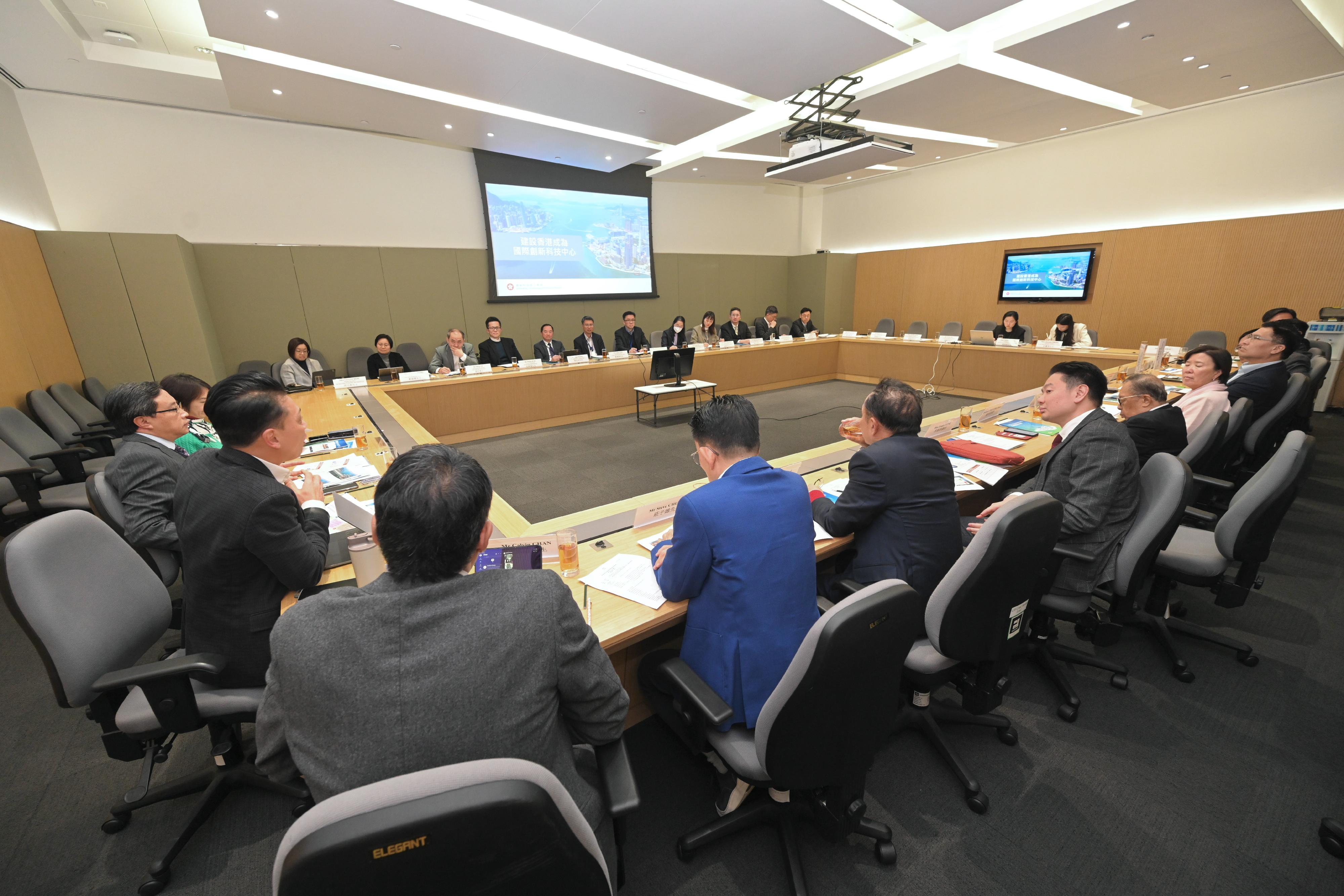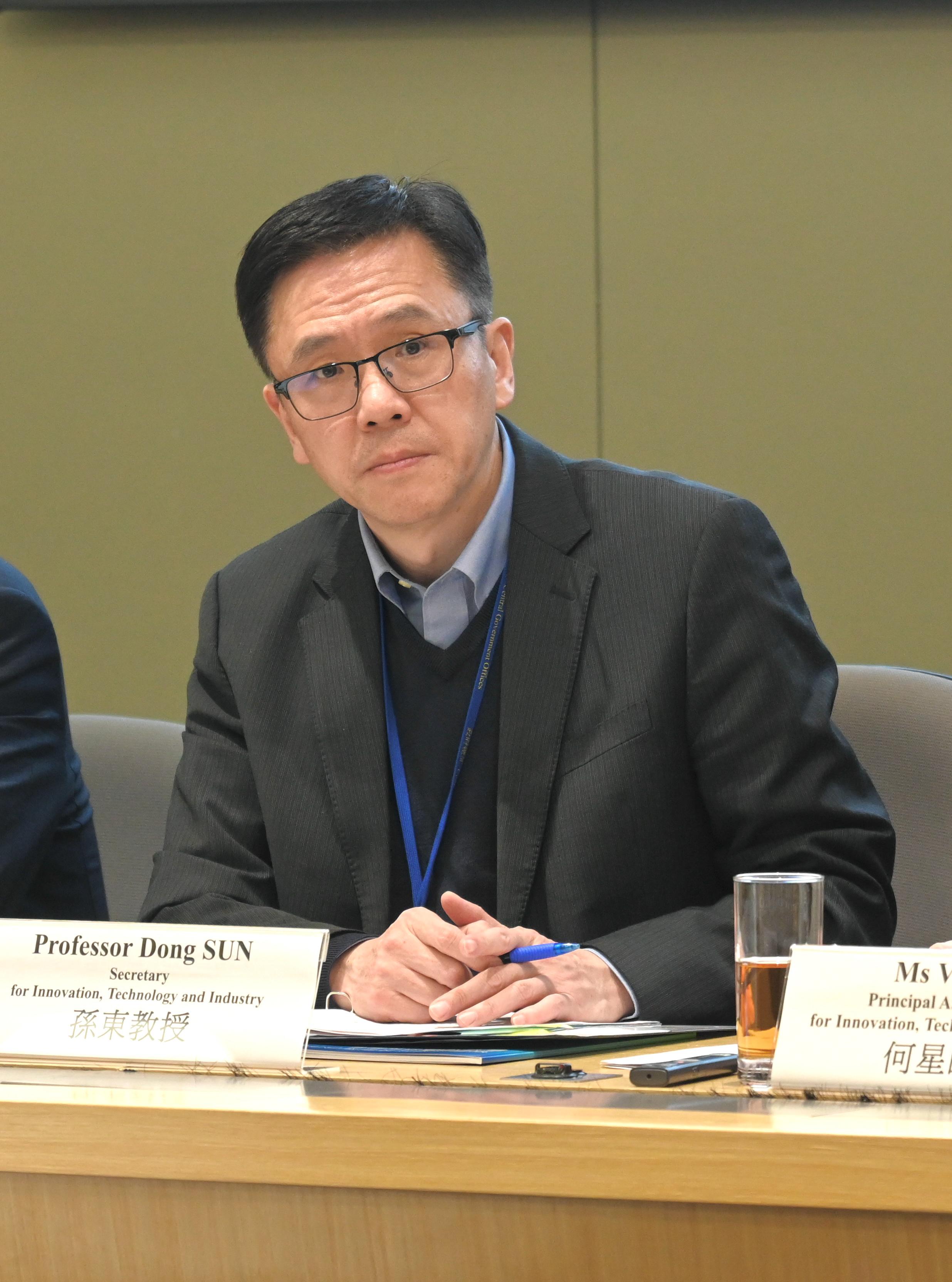Committee on Innovation, Technology and Industry Development holds fifth meeting (with photos)
The Secretary for Innovation, Technology and Industry, Professor Sun Dong, chaired the fifth meeting of the Committee on Innovation, Technology and Industry Development (CITID) this afternoon (December 20).
At the meeting, members were briefed on the major initiatives in "The Chief Executive's 2024 Policy Address" that were related to the purview of the Innovation, Technology and Industry Bureau, as well as the key features of the Development Outline for the Hong Kong Park of the Hetao Shenzhen-Hong Kong Science and Technology Innovation Co-operation Zone (the Development Outline). Members then shared their views on the relevant measures as well as the development of the innovation and technology (I&T) industry.
Moreover, representatives from the Commerce and Economic Development Bureau briefed members on the "patent box" tax incentive and listened to their views on the relevant measures.
Professor Sun said, "This year’s Policy Address is entitled 'Reform for Enhancing Development and Building Our Future Together'. The development of I&T as well as new quality productive forces tailored to local conditions are investments for the future and necessary steps to take to facilitate societal progress, which in turn benefit people's livelihood. The Government will strive for an early implementation of the relevant measures announced in the Policy Address. The Development Outline was also recently promulgated on November 20, setting out the important development directions, strategy and target of the Hong Kong Park of the Hetao Shenzhen-Hong Kong Science and Technology Innovation Co-operation Zone (the Hong Kong Park) and leading the development of the Hong Kong Park through top-level design. The Government will join hands with all sectors of the community in promoting the high-quality development of the Hong Kong Park in the Loop."
Established on March 3, 2023, the CITID advises the Government on the directions and strategies as set out in the Hong Kong Innovation and Technology Development Blueprint on promoting the development of I&T in Hong Kong, and enhances co-operation among stakeholders.

